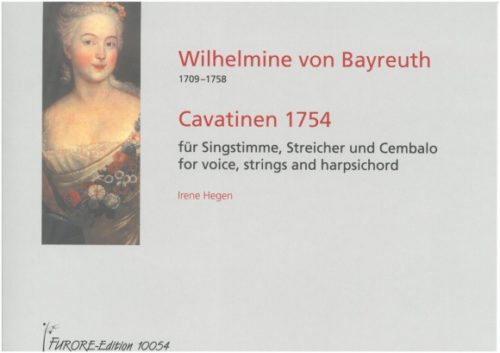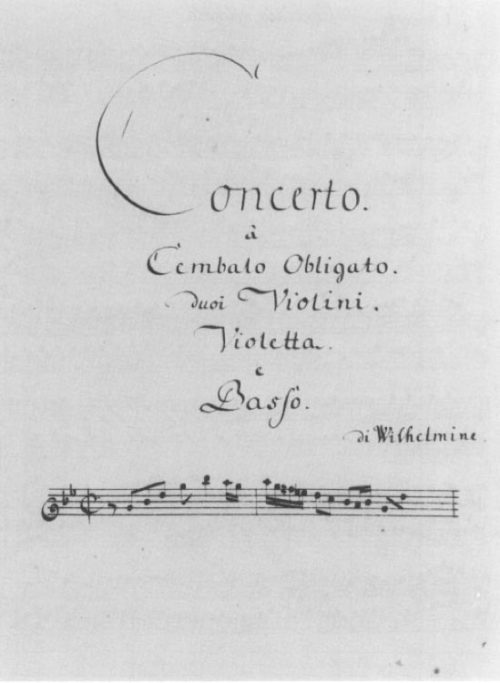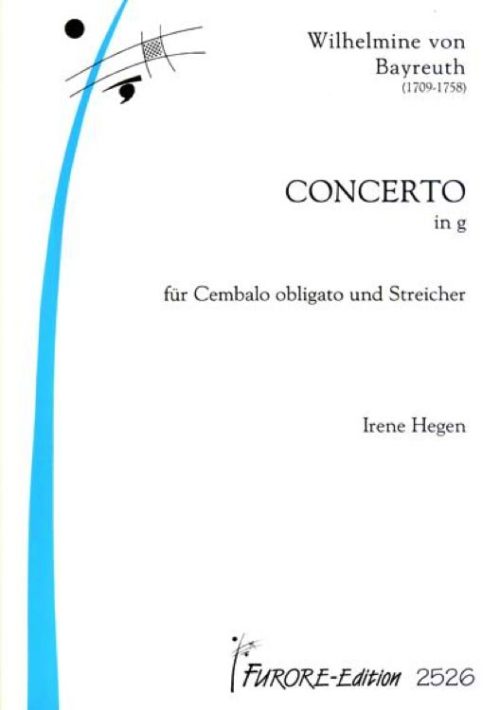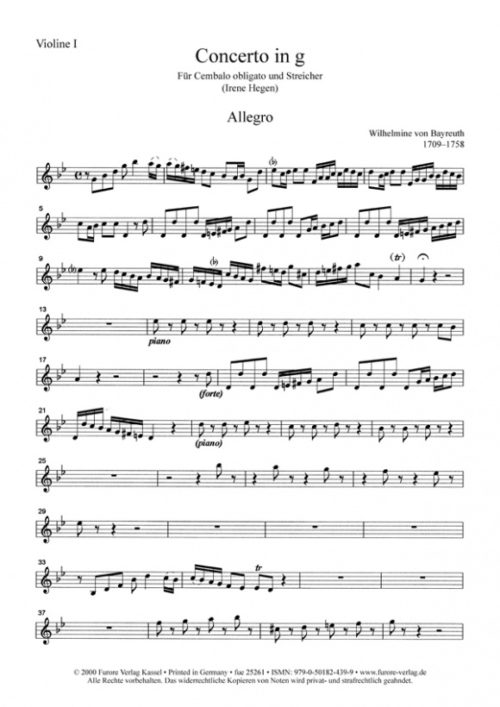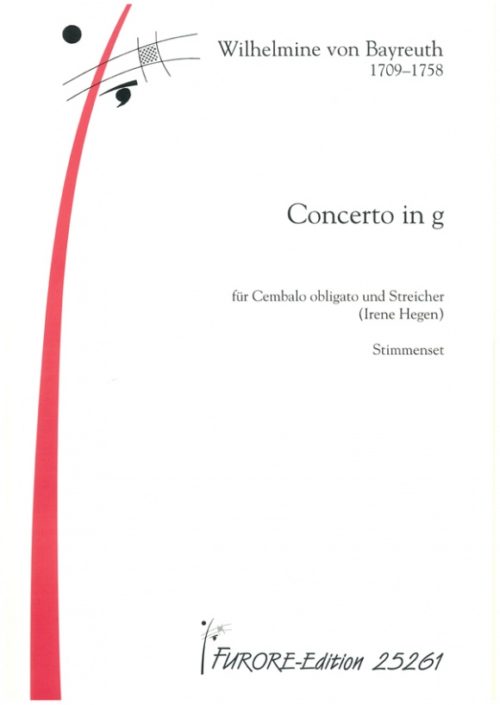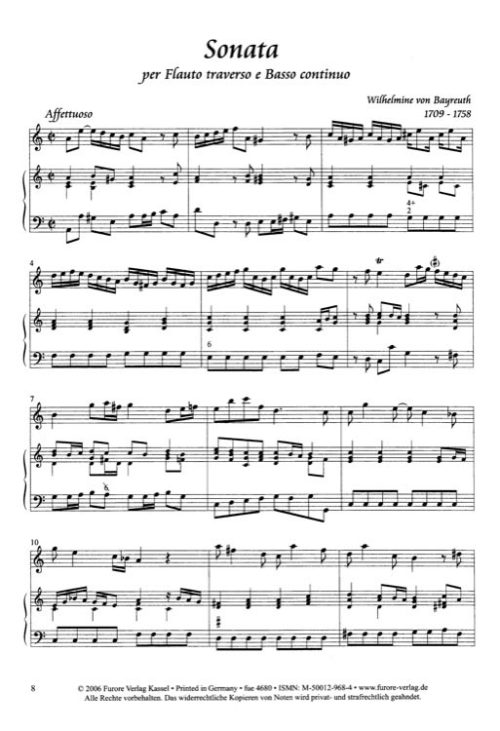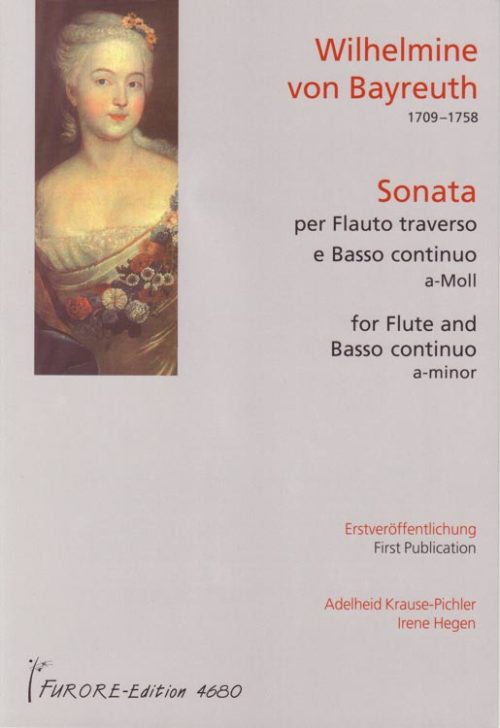Wilhelmine von Bayreuth and her musically knowledgeable husband, Margrave Friedrich (1711–1763), not only provided for splendour in their Franconian residence in the form of new stage sets, but also ensured an interesting and original programme. Although
Friedrich appeared to appreciate the entertainment muse more than that of great opera, Wilhelmine was clearly the sponsor of “opera seria”. Thus, after chamber music that was initially more in the French style at the start of the reign of the Margrave and his lady in 1735, Italian “dramma per musica”, whose exponents were primarily castrati and primadonnas from the south, became established in Bayreuth from 1737 onwards.
Adopting Italian musical theatre was a logical step for Wilhelmine: as heir to the throne she had already staged secular cantatas with ballet on mythological subjects (texts and music have been lost), thereby following on from the performances of her grandmother Sophie Charlotte,
Queen of Prussia. Later, with the help of Italian opera companies, she adopted the Italian singing style by first composing a pastoral which was performed in the summer/autumn of 1738 in Bayreuth/Erlangen(?). That she wrote both the libretto and the music is apparent from
a letter written by her brother. Researchers now agree that the libretto of her (sole completely preserved) opera seria L’Argenore from 1740 can only have originated from Wilhelmine herself. As a royal princess and daughter of a “great king” (Friedrich Wilhelm I.), an awareness of being a part of the very world history from which operatic material was derived
in the Baroque period obviously gave her the greatest motivation for this. Her further opera compositions demonstrated a logical progression in the development and philosophical appraisal of her own past and experiences. If we compare Wilhelmine’s surviving compositions with the much more extensive musical works of her brother Frederick the Great we are inevitably left with the impression that the greater part of her music must have been lost. Even in their youth in Berlin, brother and sister were virtually in competition to see who could write more music and later in Bayreuth Wilhelmine the composer initiated operas and concerts at court. Both from her time in Berlin and in Bayreuth, therefore, much more of her music should have survived. In particular we have absolutely no information about the content and programmes of the “Academies” held regularly at the Academie der freyen Künste und Wissenschaften (Academy of the Free Arts and Sciences) founded in Bayreuth in 1756, to which Wilhelmine devoted much of her musical energies in the last two years of her life. Several opera librettos written by her have been preserved, both autograph and as printed copies, but only three of her musical compositions have gradually come to light and been published. Some years ago Furore first published her harpsichord concerto. This concerto must be one of the earliest original clavier concertos. It shows that Wilhelmine was not only a virtuoso harpsichordist, but that she was able to make a highly individual contribution to the genre at an early stage in her musical career.



